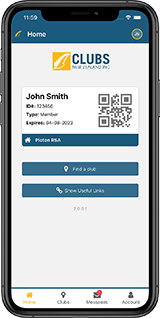Face covering exemptions
14 October 2021
Face coverings can help reduce the spread of COVID-19. They stop droplets spreading when someone speaks, laughs, coughs or sneezes. There are a number of situations and locations where wearing a face covering is mandatory such as on public transport, visiting healthcare or aged care facilities, inside retail businesses or public venues such as museums and libraries.
In general, face coverings should be worn wherever possible, particularly if you are around people you do not know. There are situations and businesses where it is not mandatory to wear a face covering for practical reasons such as:
- Hospitality venues — people cannot eat while wearing a face covering. As a customer you will be seated and separated, you are not required to wear a face covering. But are encouraged to wear one when you are not eating or drinking. Employees must wear a face covering.
- Going to barbers, beauty therapists and hairdressers or accessing other close contact businesses, a face covering can become impractical in these situations. You are encouraged to wear one if possible. Employees must wear a face covering.
- If you work in an environment that does not have customers or is not public facing, for example an office or factory floor.
- Worship or faith-based gatherings, for example church services.
- At schools or tertiary education facilities — we strongly encourage anyone 12 and over to wear a face covering. At Alert Level 3, students in Years 9 to 13 and staff at high schools need to wear a face covering in all indoor settings at a high school, for example classrooms and assemblies.
- Special interest education, such as music lessons, art groups and girl guides — you are encouraged to wear a face covering but it is not required.
- When exercising, this includes outside, at a gym, group exercise and dance classes.
There are also exemptions for some people who have a disability or health condition that may not be able to wear a face covering safely or comfortably. People who are exempt can apply for the face covering exemption card that was developed by Ministry of Health for people with physical or mental health conditions or disability that makes wearing a face-covering unsuitable. Disabled Persons Assembly (DPA) NZ is a pan-disability Disabled People’s Organisation that has been tasked with the administration of face covering exemption cards.
Current exemptions for face coverings remain, including (but not limited to):
- people under the age of 12;
- or with physical or mental health conditions or disability that makes wearing a face-covering unsuitable; or
- the person is communicating with a person who is deaf or hard of hearing and visibility of the mouth is essential for communication.
The full list can be found here: https://www.legislation.govt.nz/regulation/public/2021/0263/latest/LMS549831.html
It is important for clubs to know that while face covering exemption cards are available a formal exemption is not needed to be exempt.
More information on face covering requirements and the various exemptions can be found on the governments covid website https://covid19.govt.nz/health-and-wellbeing/protect-yourself-and-others-from-covid-19/wear-a-face-covering/



